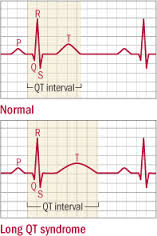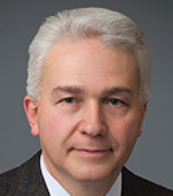Are you scratching your head wondering why your cardiologist is not the least bit concerned over your borderline QT prolongation?
This lack of concern is certainly not a rare event, in that it happens quite commonly. But we have to put it into context too.
For example, suppose a 12-year-old girl faints for no apparent reason while playing basketball. An EKG shows a borderline QT prolongation. This will get a doctor’s attention.
• Has she ever fainted before?
• Have immediate or extended family members ever fainted for no reason?
• Have immediate or extended family ever died suddenly despite being apparently healthy, and especially at younger ages?
An answer of “yes” to any of the above questions will definitely make a cardiologist concerned over the borderline QTc.

However, less, if any, concern will be given to a 45-year-old who’s asymptomatic but decides to have a heart disease screening due to age.
But this person is very physically fit, on no medications (which can prolong the QT interval), and has been exercising hard all his life without incident. A borderline QTc will not be worrisome.
“Borderline QTc (440-470 ms) is found in 15 percent of the general population,” says Andrea Natale, MD, cardiac electrophysiologist and executive medical director of the Texas Cardiac Arrhythmia Institute at St. David’s Medical Center.
“A ‘borderline’ QTc value is not sufficient evidence for a diagnosis of LQTS or even borderline/possible LQTS,” states a report in the British Journal of Sports Medicine (Johnson et al, March 2014).
Internal medicine and cardiology doctors who don’t show concern over an asymptomatic patient’s ECG reading of “borderline QT prolongation” are likely quite aware that LQTS is one of the most over-diagnosed conditions – for a variety of reasons that are too technical to go into here.
Making the ECG’s “borderline QT prolongation” even less relevant is when the patient reports NO family or extended family history of fainting, unexplained drownings or sudden deaths.
Even a slight probability of long QT syndrome does NOT come down to one mere data point – the ECG computer calculation that’s so subject to error.
For example, commonly used for the calculation is the Bazett formula.
But the more elevated one’s heart rate is during an ECG, the more overestimated the QTc will be when this formula is used.
“An ECG with borderline QTc without any LQTS-specific symptoms or pertinent family history is not conclusive evidence for the diagnosis of LQTS,” says Dr. Natale.


 greatest reward is restoring his patients to a life free of cardiac arrhythmia. He pioneered a circumferential ultrasound vein-ablation system to correct atrial fibrillation and performed the procedure on the world’s first five patients.
greatest reward is restoring his patients to a life free of cardiac arrhythmia. He pioneered a circumferential ultrasound vein-ablation system to correct atrial fibrillation and performed the procedure on the world’s first five patients.







































